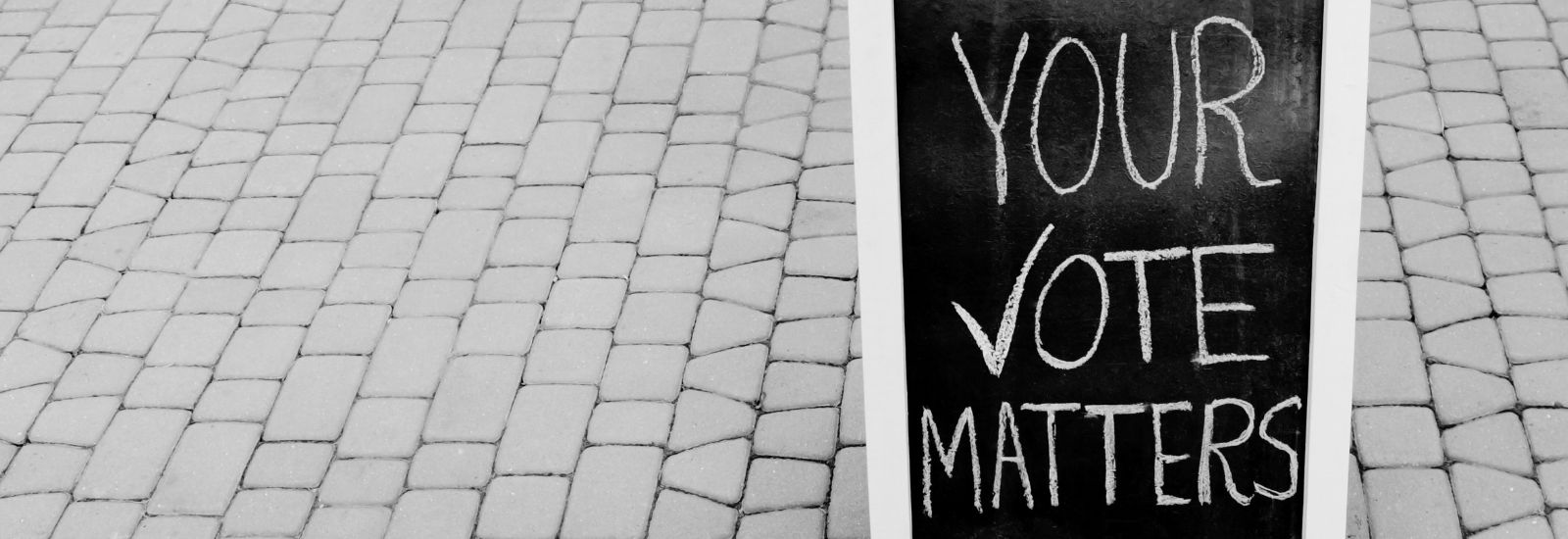“I’ve had people tell me over the years that they don’t feel they know enough to vote. But you don’t need any qualifications. Everyone should feel they have the confidence, knowledge and understanding to cast their vote,” shared Reading graduate Natasha Brissenden.
 After the 2024 general election, CONNECTED spoke with Natasha, a Digital Communications Manager at The Electoral Commission.
After the 2024 general election, CONNECTED spoke with Natasha, a Digital Communications Manager at The Electoral Commission.
Natasha opened up about the lifelong connections she made at Reading; the crucial work she and her team do in the democratic space to support the needs of voters; and why your vote matters.
Lifelong connections
Natasha, who studied philosophy, chose Reading because the course had a good reputation and she loved the campus and staff she met in the department.
“The course set me up to know what I was capable of. It showed me that when you’re passionate about something it drives your success. And I’ve taken that rule forward with me in my career,” reflected Natasha.
But it wasn’t just what Natasha learnt at Reading which stayed with her – she also made lifelong connections at university. Speaking about her experience here, she said: “I made friends for life. We’ve been friends for sixteen years and meet up as much as we can – we even go on holiday together.
“I also met my husband at Reading. We’ve been together for fourteen years and now have a little girl called Alice, who will be turning three very soon.”
Getting involved in democracy
Upon graduating, Natasha worked as an intern at a mobile advertising company. It was a start-up business which presented her with lots of opportunities to work in different areas including digital, marketing and event planning.
Her next career move was to the Greater London Authority (GLA). Her new skills, coupled with her keen interest in politics, made this a perfect fit for Natasha.
She said: “I started working at the GLA in 2013 and stayed there for just over five years. During that time I worked on some exciting and rewarding projects, from modernising their social media approach to covering the MTV EMAs in Trafalgar Square.
“But the standout project for me was running the social media management for the 2016 mayoral elections – the first proper ‘social media’ election in London,” she explained.
“The project made me realise I was passionate about helping citizens get involved in democracy – particularly the role that digital communications play in providing voter information in accessible and easy-to-understand ways.”
Having figured out what she wanted to pursue, Natasha started working for The Electoral Commission in 2018 – the independent body which oversees elections and regulates political finance in the UK.
Instilling confidence in the system
In her role as a Digital Communications Manager, Natasha oversees a team of five who are responsible for the Electoral Commission’s website, social media channels, digital tools and email marketing programme.
Natasha explains what her team does ahead of an election, and how they support the needs of voters across the UK.
She said: “My team and I make sure that we’re communicating everything voters might need to know to cast their vote. This means making sure they know when the election is, what the important deadlines are, how to vote and what forms of voter ID are accepted.
“It involves creating content for social media channels that’s informative, authoritative and shareable. We need to manage our social media platforms effectively to answer questions about voting, correct misinformation, and ensure voters have confidence in the system.”
Showing how this works in practice, Natasha spoke to us about the election tool they run with their partners at Democracy Club.
“The tool is a quick way for voters to find out which election is taking place, who’s standing and where their polling station is. The BBC has also used our data to power a tool on their website which means more voters can easily find this information.
“We had over 14 million postcode searches across our website, Democracy Club and the BBC in the run up to the general election.”
Bridging the knowledge gap
The goal of Natasha’s team is to make sure voters have the confidence, knowledge and understanding to cast their vote. She told CONNECTED about some of the challenges they have faced in engaging with UK voters in recent years.
She said: “There have been some big changes to electoral law such as the introduction of voter ID. We’ve worked with teams across the Commission to make sure voters know about this change and which types of photo ID are accepted.
“The work we’ve done together has resulted in a high awareness of the requirement. Confidence in how elections are run is high and the work we do on social media plays a part in this.
“Electoral law is complicated – our content creation and community management efforts help bridge that knowledge gap and correct any misunderstandings about how elections are run.”
In an ever-changing digital world, Natasha shared that the rise in misinformation and disinformation has also had an impact on voters.
She said: “With information spreading so quickly on social media it can be challenging to figure out what’s real and what’s not.
“To counteract this, we work with our policy team colleagues and other regulators to provide advice to voters on how to think critically about the information they see, before deciding whether to let it influence their vote.
“It’s part of the work we do to be a trusted, reliable source of election information.”
Having your say
Natasha is passionate about the work she does in the democratic space and shares why having your say is important.
“Voting is about more than who will be the next prime minister. It’s your opportunity to have a say about who represents you in Parliament [whether that’s UK Parliament, Northern Ireland Assembly, Scottish Parliament or Welsh Senedd]. That’s important because they are representing you on the big issues facing the UK or your nation.
“At local elections, you are voting for someone who is going to represent you on the day-to-day issues that can have a big impact on your life – whether that’s when your bin is collected, roadworks or improving local facilities.
“The advice I’d give to any first-time voters is to think about the issues that are important to you.
“Spend time reading manifestos, and make sure you bring photo ID to vote at a polling station for those elections that need it!”
Find out more about The Electoral Commission.




